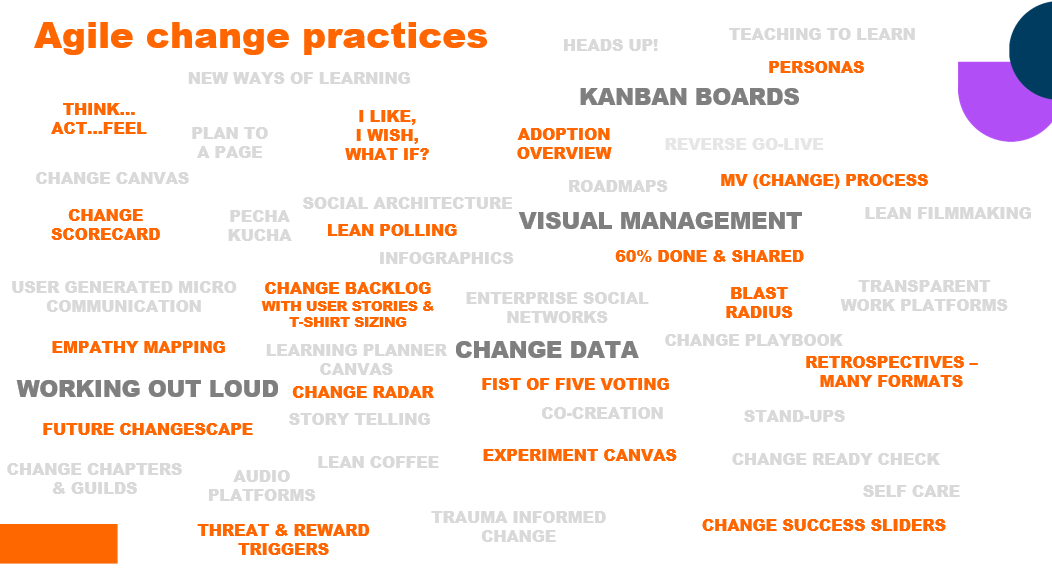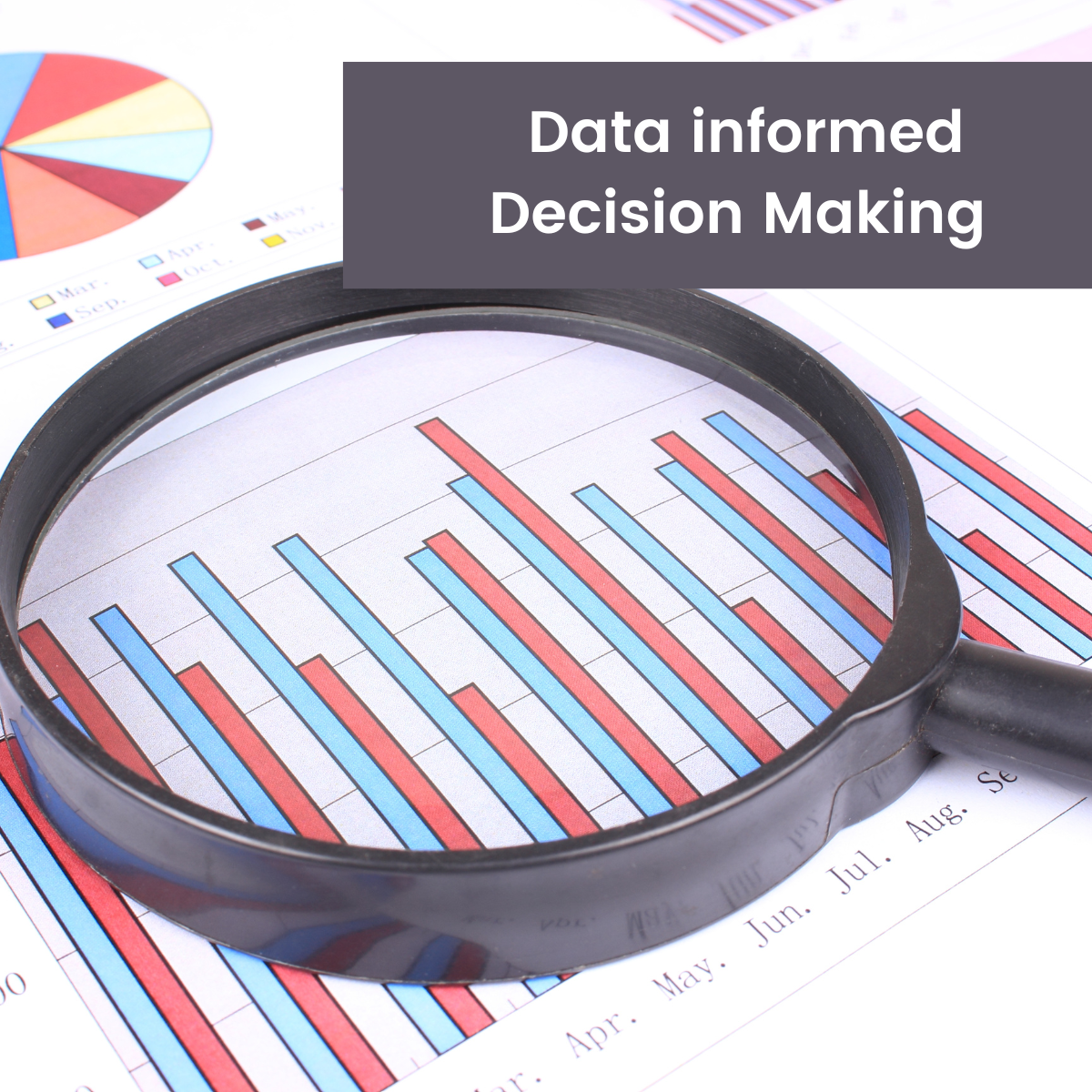When it comes to data informed decision making, it’s one of those universal truisms in change. The more work you put in upfront, the better the result when you launch your change. This is the same for the core capability of analysis, which informs data informed decision making – and the reason this section is the largest. Because, as W. Edwards Deming says – ‘Without data, you are just another person with an opinion’. And we want you informed, not opinionated!
There are five key questions we need to ask when it comes to Data informed Decision Making in our Agile Change Manager Certificate program.
What work do we have to do?
What are the change impacts?
How will we continually improve?
Who are our stakeholders?
How will we anticipate and track progress?
How do we gather data to inform?
While it is tempting to assume that data needs to come from organisational systems (and yes, that is SUPER helpful) for many of us, our opportunity to gather data comes from agile change activities!
That said there is a raft of digital tools available to you now that you may find you can get useful data from (Workday, Success Factors, Yammer, Workplace, Mailchimp, Adobe, Campaign Monitor, Poppulo, Culture Amp) not to mention the dozens of ‘Single View of Change’ enterprise applications.

Evidence based change practice
There has been a trend to use ‘Evidence Based’ change practice’ and for a great primer on Evidence Based Practice check out Professor Rob Briner’s article and infographic. Evidence based practice takes into account four sources of data:
- Empirical science (peer reviewed published articles)
- Stakeholder sentiment (what the people in your organisation says)
- Practitioner experience (that’s you)
- Organisational data (to the point above – sourced from digital tools)
While several Evidence Based Practitioners seem to prioritise empirical science over the other three sources, we would encourage you to trust your experience and intuition. Yes, there will be cognitive biases at play, but you’re smart enough to factor that in.
Collecting data to inform
Your biggest strength in data informed decision making is learning how to run experiments. If you don’t have the data available, go out and get it. It can often be very reassuring for your senior stakeholders when you take a structured approach through hypothesis testing.
We cover this in our Agile Change Manager Certificate program!
So…in summary, when it comes to data informed decision making:
- Don’t overlook what’s in front of you
- Leverage digital tools
- Don’t dismiss experience
- Gather date with beta testing and experimentation
- If it doesn’t feel right, dig for more
Good luck!



